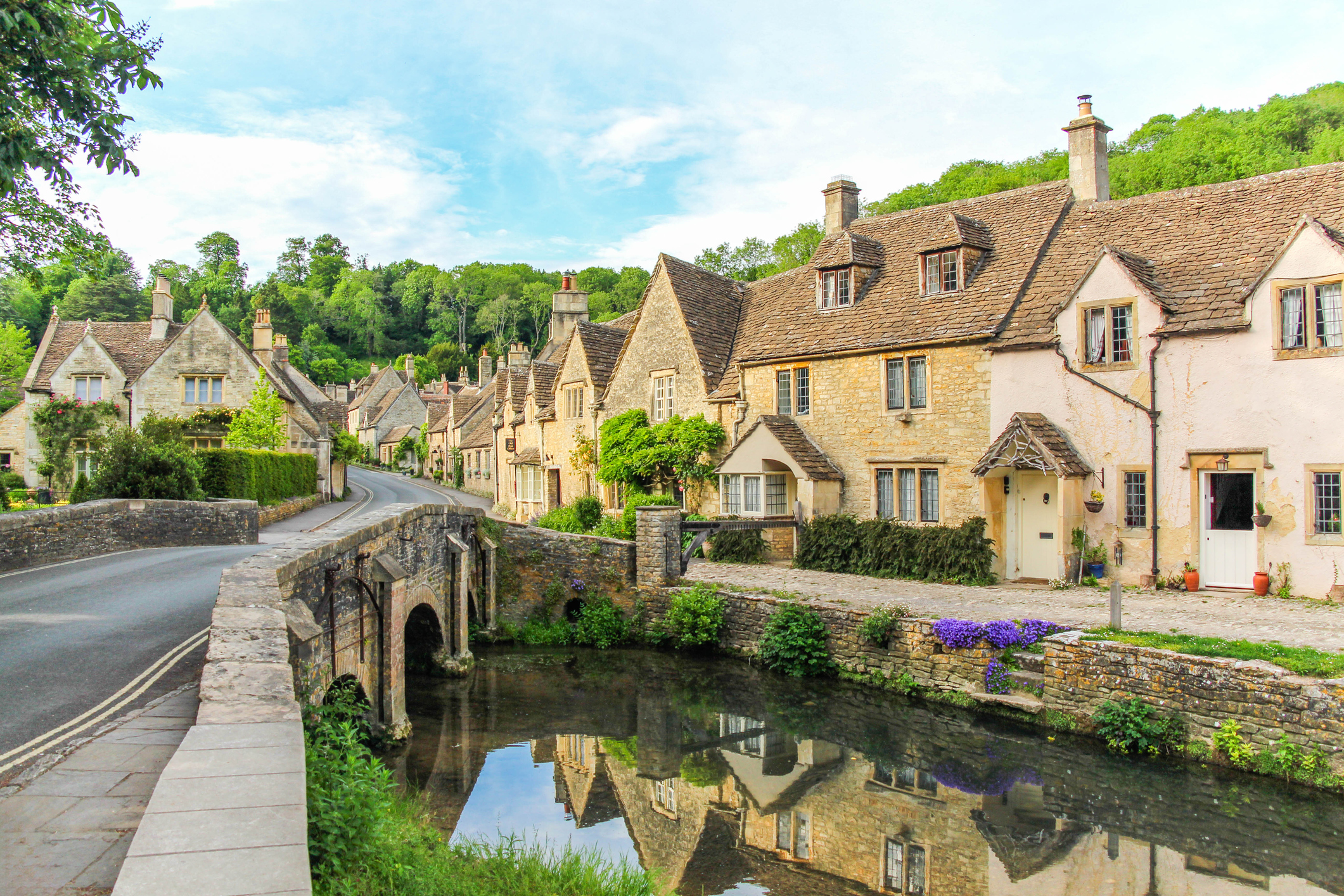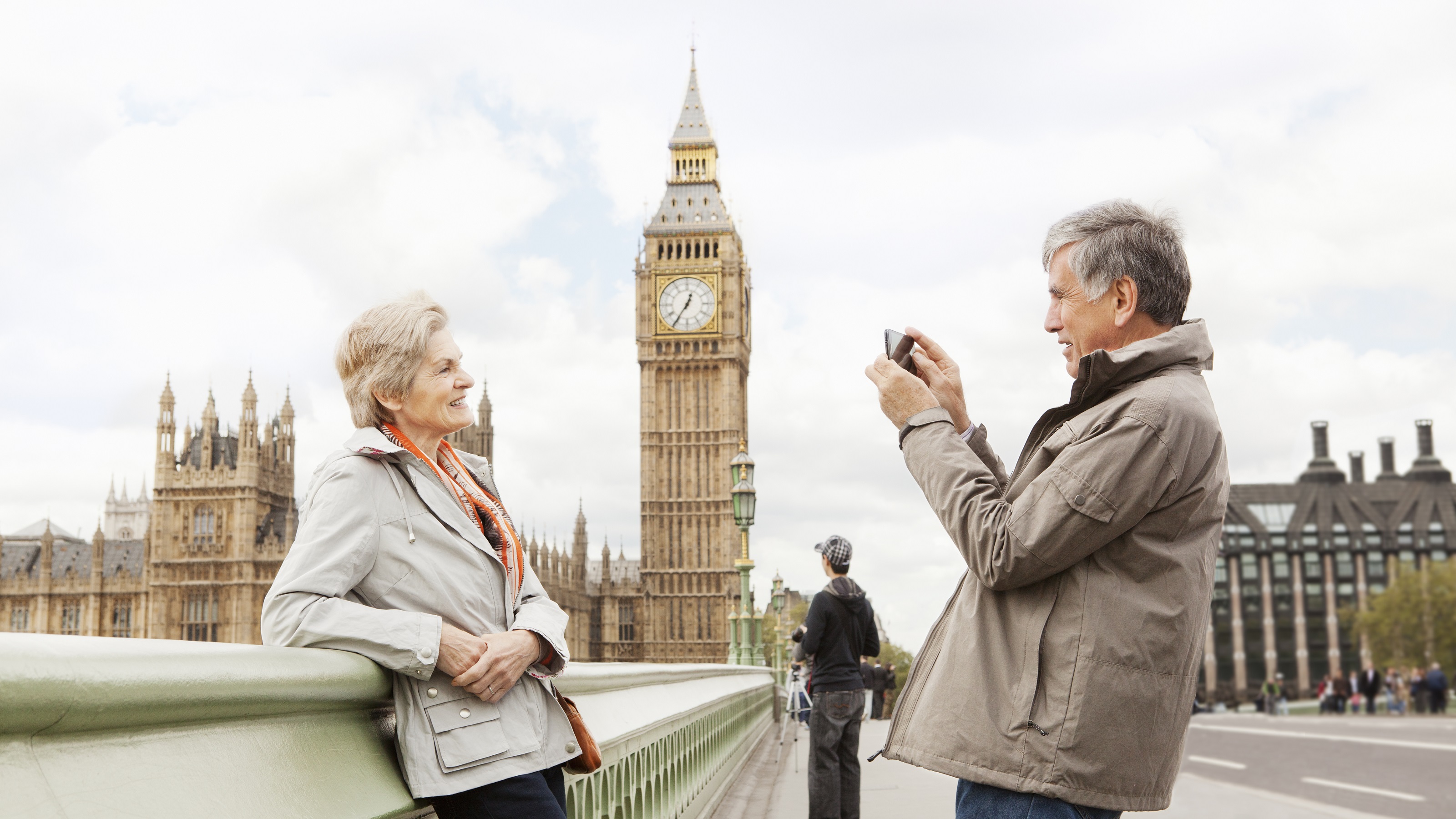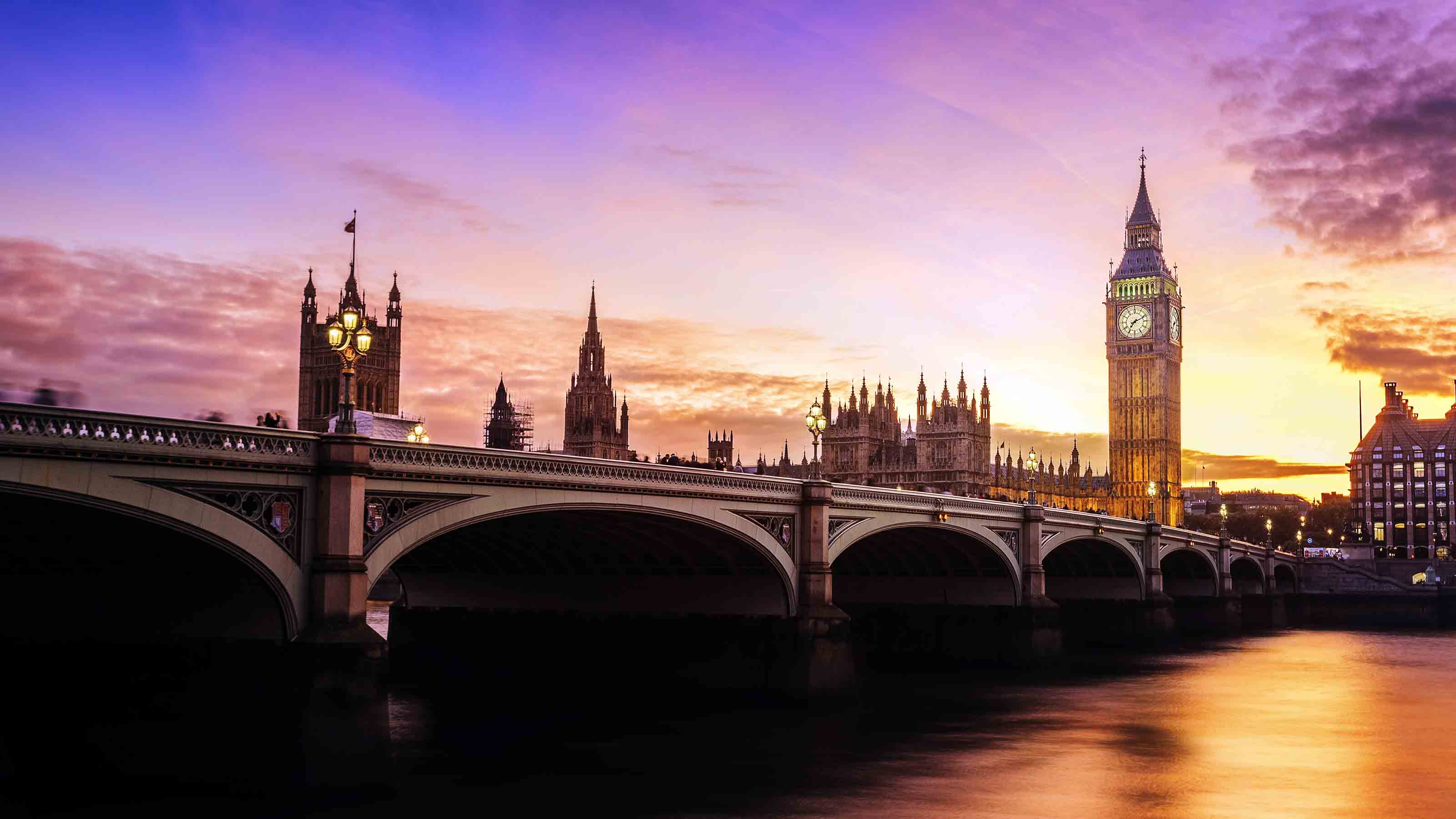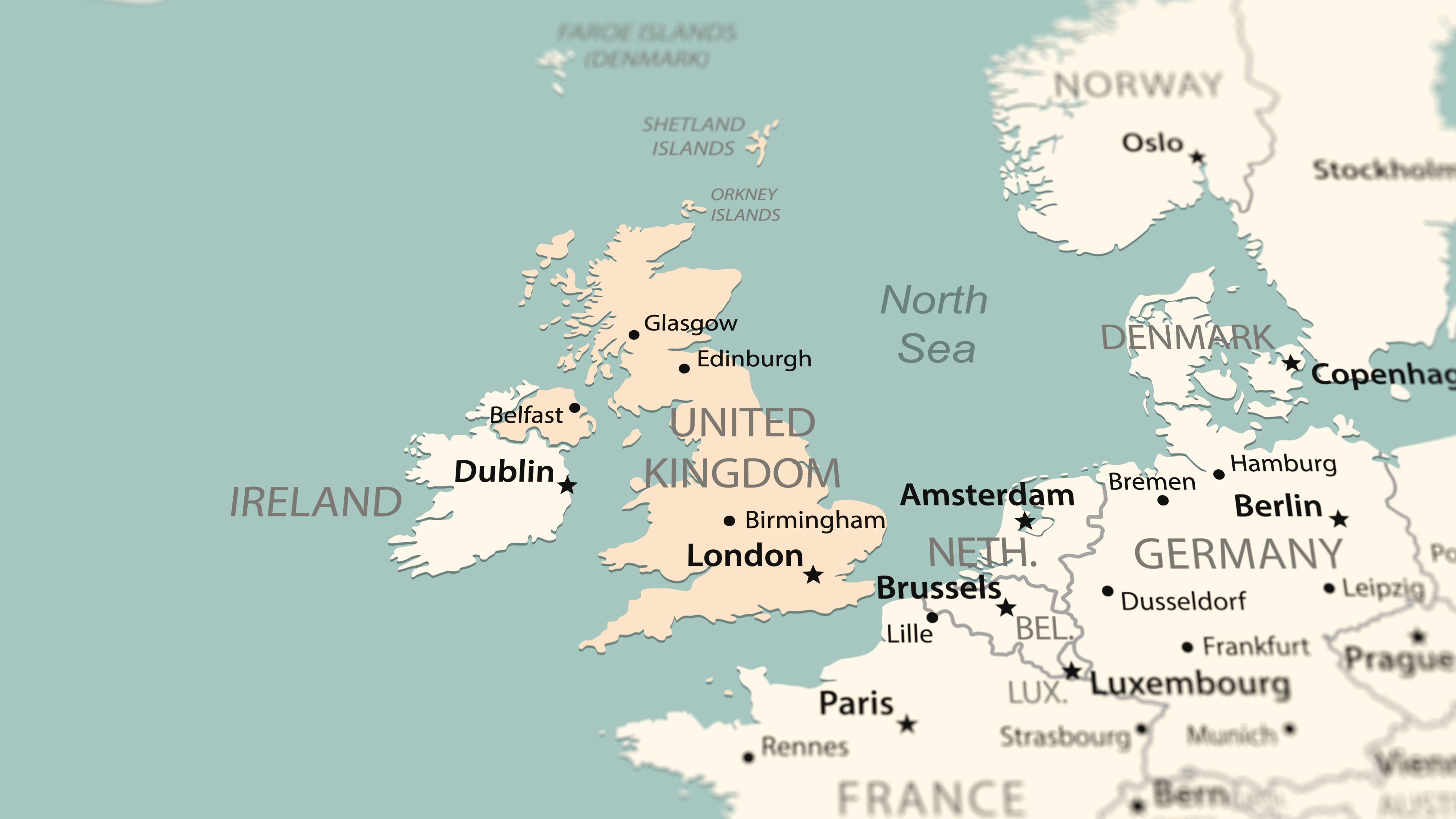Retire in the UK for Culture, History and Location
Want to retire in the UK? You'll need to do plenty of planning, but the benefits of living in a diverse country near the rest of Europe are worth it.


Profit and prosper with the best of Kiplinger's advice on investing, taxes, retirement, personal finance and much more. Delivered daily. Enter your email in the box and click Sign Me Up.
You are now subscribed
Your newsletter sign-up was successful
Want to add more newsletters?

Delivered daily
Kiplinger Today
Profit and prosper with the best of Kiplinger's advice on investing, taxes, retirement, personal finance and much more delivered daily. Smart money moves start here.

Sent five days a week
Kiplinger A Step Ahead
Get practical help to make better financial decisions in your everyday life, from spending to savings on top deals.

Delivered daily
Kiplinger Closing Bell
Get today's biggest financial and investing headlines delivered to your inbox every day the U.S. stock market is open.

Sent twice a week
Kiplinger Adviser Intel
Financial pros across the country share best practices and fresh tactics to preserve and grow your wealth.

Delivered weekly
Kiplinger Tax Tips
Trim your federal and state tax bills with practical tax-planning and tax-cutting strategies.

Sent twice a week
Kiplinger Retirement Tips
Your twice-a-week guide to planning and enjoying a financially secure and richly rewarding retirement

Sent bimonthly.
Kiplinger Adviser Angle
Insights for advisers, wealth managers and other financial professionals.

Sent twice a week
Kiplinger Investing Weekly
Your twice-a-week roundup of promising stocks, funds, companies and industries you should consider, ones you should avoid, and why.

Sent weekly for six weeks
Kiplinger Invest for Retirement
Your step-by-step six-part series on how to invest for retirement, from devising a successful strategy to exactly which investments to choose.
Editor’s note: "Retire in the UK" is part of an ongoing series on retiring abroad. To see all the articles in the series, jump to the end.
The United Kingdom has long been a close ally of the United States, and the many ties between the two countries make it hard to imagine the enmity between them during the Revolutionary War.
These days, a typical American looks at the U.K. not as a foe, but as a favored trade, economic, political and cultural partner. The country consistently makes the list of best landing spots for U.S retirees.
From just $107.88 $24.99 for Kiplinger Personal Finance
Become a smarter, better informed investor. Subscribe from just $107.88 $24.99, plus get up to 4 Special Issues

Sign up for Kiplinger’s Free Newsletters
Profit and prosper with the best of expert advice on investing, taxes, retirement, personal finance and more - straight to your e-mail.
Profit and prosper with the best of expert advice - straight to your e-mail.
“The U.K. is a wonderful retirement destination for U.S. retirees if you value culture, history and a slower pace of life mixed with vibrant towns,” said Mac Steer, owner at Simify, a travel communications services company.
“We’ve heard countless stories from customers who have extended their visits after falling in love with the U.K.”
Steer recalls a recent visit to The Cotswolds, a region in South Central England known for its rolling hills and honey-hued limestone buildings.
“One morning, I wandered through one of the region’s village streets to grab a fresh loaf from the bakery,” he said. “Struck by how friendly the locals were, I ended up chatting with the shop owner for nearly an hour about the best nearby walking trails. Every moment felt like stepping into a storybook.”
Combine that rural ambience with not one, but four vibrant, multicultural capital cities (Belfast, Cardiff, Edinburgh and London), charming coastal towns that dot the perimeter of the British Isles, and easy access to the rest of Europe, and it’s easy to see why a U.S. retiree might decide to call the country home during their golden years.
If that sounds like your cup of tea, here’s a rundown of what matters when retiring to the U.K.
Retiring in the U.K: Getting a visa

Elaine Warren, a travel expert and founder and CEO of The Family Cruise Companion, has visited more than 60 countries and counts the U.K. among her favorites.
“For U.S. retirees, the U.K. offers a beautiful mix of culture, history and convenience — especially for those who want an English-speaking country without giving up the chance to explore somewhere new,” she said. “But retiring here isn’t as simple as booking a one-way ticket.”
Exhibit A on that front is getting certified to remain in the U.K.
“The visa process is strict, and unless you have family ties or significant income — usually around $25,000 a year — you’ll need to plan well in advance,” Warren noted. “Securing a visa can take time and often requires legal guidance.”
Americans visiting the U.K. for six months or less don’t require a visa (although you will need an electronic travel authorization or ETA).
If you plan to stay longer, you’ll need the proper paperwork. As Warren notes, family connections, owning a home in the country or maintaining business connections in the U.K. will help you get to the front of the line.
Applying for a U.K. visa is similar to applying for a visa in any developed country, with these qualifications in mind.
- You'll need two color photographs taken in the past six months
- A valid U.S. passport is required
- Proof of adequate finances is needed, too, primarily to demonstrate you have the means to live on your own while in the country
- Proof of accommodation is required, as well. That could be a private home, a hotel or even a hostel, as long as you have documented proof of where you’re staying
- Expect to fill out a travel itinerary while in the U.K., including dates, lodging and transport paperwork, and transport means
- You’ll need to provide biometric data, including fingerprints and photographs
- Proof you’ve paid your U.K. visa application fees will be expected. A receipt showing the application was paid will suffice
“Remember, visa rules evolve in the U.K., so speaking with a qualified adviser before booking movers can keep unwelcome surprises to a minimum,” said Fiona Spinks, a solo adventurer and founder of the travel website Following Fiona.
Cost of living in the UK

The cost of living in the U.K., which encompasses England, Scotland, Northern Ireland and Wales, was comparable to the U.S. in 2025.
According to Numbeo’s cost-of-living aggregator, lifestyle costs in London (the largest city in the U.K., with an estimated population of around 8.9 million) break down as follows (in U.S. dollars):
- Estimated monthly cost of living for a family of four (not including rent): $5,065
- Estimated monthly cost for a single person (not including rent): $1,437
- London’s total average cost of living is 16% less than New York City's
- Compared with New York City, rental costs in London are 28.3% lower
Cost-wise, things can get expensive fast, though, depending on where you land.
“A two-bedroom home in a city like Manchester might cost around $300,000, while rent can run up to $1,400 a month,” Warren said. “Cities like Glasgow or Birmingham are in a similar range, though London and the Southeast are much higher.”
On top of that, you might need to pay "stamp duty" when buying a home; the tax is levied on properties in England and Wales that cost more than £125,000 ($170,659), but the system is different for properties in Scotland and Wales.
In England, Wales and Scotland you'll need to budget for council tax — the annual charge for local services, such as waste collection. The cost depends on where you live and the size of your home, but the average council tax set by local authorities in England for 2025-26 will be £2,280 ($3,112). (Northern Ireland has its own system of "rates".)
Average gas and electricity costs (for a medium-size house) are about $195 a month, while the average water bill is about $600 annually.
Broadband internet costs about $35 a month on average. Unless you only watch TV on streaming services, you'll need to pay for a TV license. (Those eligible for pension credit might get this free.)
Groceries for two people cost about $100 per week, depending on your habits, while the cost of dining out varies considerably.
"Dinner for two [two mains and two soft drinks] at a casual place can cost around £40 in UK currency,” Warren said.
Like anywhere, your budget will depend on where you choose to live, but it’s essential to be realistic from the start. “Rural areas and smaller towns are often more affordable, with the added bonus of lower crime and a stronger sense of community,” Warren added.
Tax and retiring in the UK

Taxes can be a complicated issue for U.S. retirees living in the U.K., and some downside risks are definitely in play.
First up is the U.S., which taxes citizens on their worldwide income, regardless of where they reside. That means England-bound retirees need to file U.S. tax returns and might end up owing U.K. taxes if they work and invest there.
The U.S.-U.K. tax treaty helps avoid being taxed twice, but to ensure you’re getting a fair deal, consult with a seasoned tax professional familiar with tax laws in both the U.S. and the U.K.
Failing to do so might result in adverse tax consequences.
“The biggest shock for my clients considering U.K. retirement is the tax complexity,” said Marc Egort, a certified public accountant and owner at Marc Egort CPA, P.A.
“Unlike other expat destinations, the U.K. has a 'deemed domicile' rule that can subject U.S. retirees to U.K. inheritance tax on worldwide assets after 15 years of residence. I've seen retirees face unexpected tax bills exceeding $200,000 on U.S. retirement accounts they thought were protected.”
On the upside, the U.K.-U.S. tax treaty helps avoid double taxation, but U.S. citizens must still file IRS returns.
“There are no exclusive tax benefit packages for Americans,” said Dat Ngo, a licensed CPA and personal finance professional based in Easton, Pennsylvania. “However, pension-friendly rules and no wealth tax provide advantages if planned correctly.”
Once settled, the most significant adjustment for U.S. retirees with tax concerns is the April-to-April tax year and filing duties in two countries, despite the treaty between Washington and London preventing double taxation. That’s why it’s critical to plan out not only your tax obligations, but your savings and investments, too.
“Many newcomers keep retirement income in a United States account and then transfer monthly spending money, while others open a sterling (U.K.) account for convenience,” Spinks said. “Either approach works once you engage an accountant who understands both systems.”
Access to health care in the UK

The National Health Service (NHS) is the taxpayer-funded health-care system in the UK. It's much loved, but after decades of underinvestment, it's facing increasing pressure.
Most services are still free at the point of delivery (you won't get a surprise bill for a hospital stay), but waiting lists for treatment can be lengthy. For expats, access to the system is tied to residency and visa status.
“Most expats must pay the Immigration Health Surcharge annually or get private international health insurance,” said Bill Reim, a retirement and international planning specialist at the Tom Reim Agency in Bismarck, North Dakota.
Warren added: “Getting that private health insurance is a must. It’s important to research plans ahead of time, especially to make sure your medications and any pre-existing conditions are covered.”
Where to retire in the U.K.

Choosing a place to live in the U.K. is complicated, but in a good way, as each region offers unique benefits.
“For example, Bath has stunning Georgian architecture and walkability, while Edinburgh offers culture and history,” Reim said. “Most U.K. cities offer a combination of safety, amenities and access to transportation, which are all important for aging well abroad.”
Warren favors more amenity-laden English locales, such as Exeter in Devon, or Richmond-upon-Thames, a leafy (and expensive) enclave in Southwest London.
“They’re beautiful, walkable and well connected to the rest of the country,” she said. “Dorset’s coastal towns are lovely and relaxed. For a mix of city energy and access to health care, places like Manchester and Birmingham are great choices.”
The ideal locale for Steer was the region where he spent most of his time in the UK.
“In The Cotswolds, I remember visiting … Chipping Campden during a weekend getaway,” he said. “The air felt different; soft, refreshing and calm. The golden stone cottages, lush rolling hills and the friendly locals created a serenity I hadn’t found anywhere else.”
The Cotswolds could appeal to U.S. retirees for the balance it offers. “You get a peaceful countryside lifestyle with easy access to bigger cities like Bath and Oxford for culture, shopping or medical facilities,” Steer noted.
“Plus, the sense of community in the smaller towns is heartwarming. I often recommend it to travelers looking for a slower pace of life without losing touch with modern conveniences.”
“I’d absolutely retire there myself,” he added.
Safety-wise, the U.K. feels reassuringly calm. Rural areas have lower crime rates than cities, which in turn are "safer than many in the U.S.,” Warren noted.
LGBTQ+ retirees will receive a warm welcome, and the International LGBTQ+ Travel Association calls England "one of the most LGBTQ+-friendly places in the world." London is home to the U.K.'s first LGBTQ+ affirming retirement community at Tonic@Bankhouse, and there are plans for a similar project in Manchester.
Wherever you live, a great way to meet new people is by joining your local U3A — a group in which retirees get together, try new activities and have fun, whether that means art or fitness classes, language lessons, theater trips or something more adventurous, such as whitewater rafting on the former Olympic course.
After all that, if you have time to travel back to the States, flights between the U.S. and major U.K. cities are frequent, direct and easily accessible.
“Numerous direct flights operate daily to London (Heathrow and Gatwick), Manchester and Edinburgh from cities like New York, Chicago, Dallas and Los Angeles,” Reim said. “This accessibility is key for retirees who plan to visit family or return periodically.”

Retiring in the UK: The takeaway
The U.K. offers wanderlust-minded retirees a wealth of lifestyle options that blend history, scenery and modern culture with a healthy dose of traditional British charm.
“I’ve been to The Cotswolds in spring, had tea in Devon and walked the hills of Scotland with my kids,” Warren said. “Each trip reminded me why this country continues to attract retirees who are looking for something more than just sunshine.
“The lifestyle adjustment is real, but so are the rewards,” she noted.
To gain the maximum benefits of the U.K. experience, retirees thinking about moving there should start with a clear plan.
“Make sure to understand the visa process, make room in your budget for health care and housing, and take all the time you need to find a place that fits your lifestyle,” Warren advised.
More on where to retire abroad
- Retire in Japan: It Ain’t Easy, Unless You’re Special
- Retire in Spain for Culture, Cuisine and Coastal Bliss
- Retire in Malaysia for Affordable Luxury
- Retire in Finland and Live the Nordic Dream
- Retire in Ecuador for an Affordable, Rich Life
- Retire in Costa Rica for Expat Heaven
- Retire in Malta for Quiet Coastal Perfection
- Retire in New Zealand for Lush Landscapes and a Relaxed Vibe
- Retire in Italy for Culture and Beauty
- Retire in Greece for Relaxed Living With a Cinematic Backdrop
- Retire in Thailand Where 'The White Lotus' Was Filmed
- Retire in Mexico: Get a Lower Cost of Living Near the US
- Where to Retire: Living in Portugal as a US Retiree
- Where to Retire: Living in the Dominican Republic
- Where to Retire: Living in Panama Offers Stability and Charm
- Where to Retire: Living in Brazil Is More Than Carnival, Coffee and Copacabana
- Where to Retire 2025: Puerto Rico
Profit and prosper with the best of Kiplinger's advice on investing, taxes, retirement, personal finance and much more. Delivered daily. Enter your email in the box and click Sign Me Up.

A former Wall Street bond trader, Brian O’Connell is the author of two books: “The 401k Millionaire” and “CNBC’s Creating Wealth.” He's written for national finance publications such as TheStreet.com, CBS News, The Wall Street Journal, U.S. News & World Report, Forbes, Fox News and others. With 20 years of experience covering business news and trends, he believes education is the best gift a financial consumer can receive – and brings that philosophy to his work. Brian is a graduate of the University of Massachusetts, and currently resides in Palmas del Mar, Puerto Rico during the winter, and in Bucks County, Pa., when Mother Nature cooperates.
-
 Quiz: Do You Know How to Avoid the "Medigap Trap?"
Quiz: Do You Know How to Avoid the "Medigap Trap?"Quiz Test your basic knowledge of the "Medigap Trap" in our quick quiz.
-
 5 Top Tax-Efficient Mutual Funds for Smarter Investing
5 Top Tax-Efficient Mutual Funds for Smarter InvestingMutual funds are many things, but "tax-friendly" usually isn't one of them. These are the exceptions.
-
 AI Sparks Existential Crisis for Software Stocks
AI Sparks Existential Crisis for Software StocksThe Kiplinger Letter Fears that SaaS subscription software could be rendered obsolete by artificial intelligence make investors jittery.